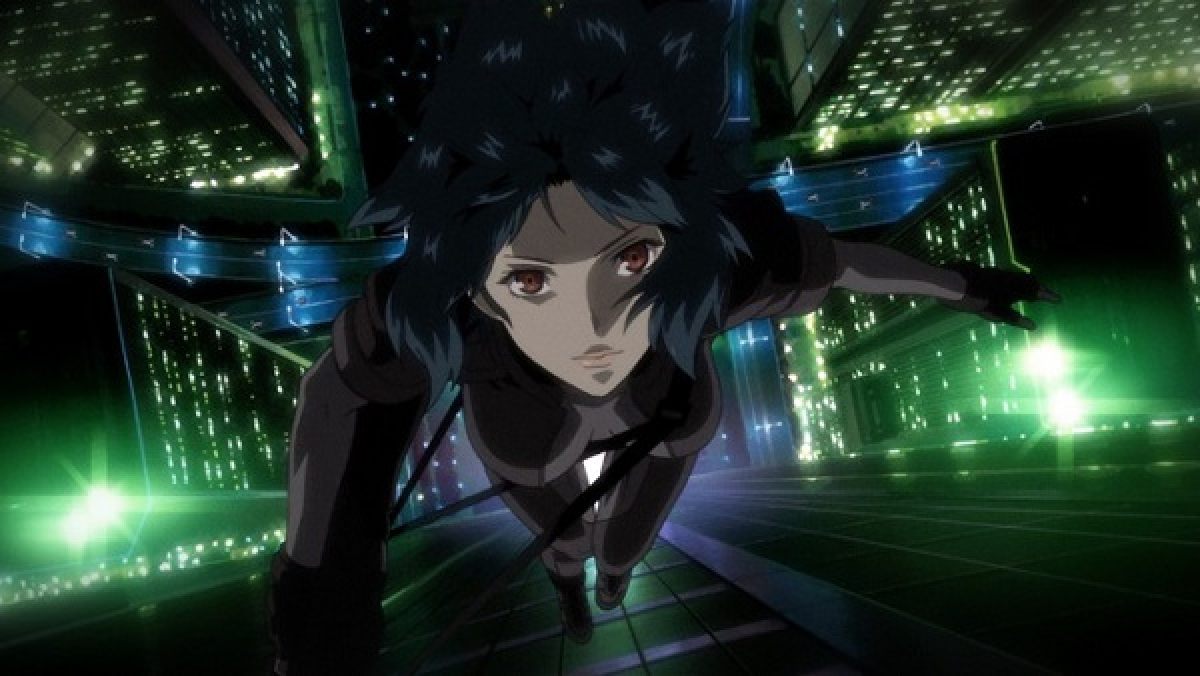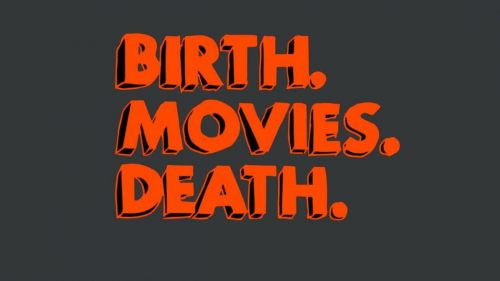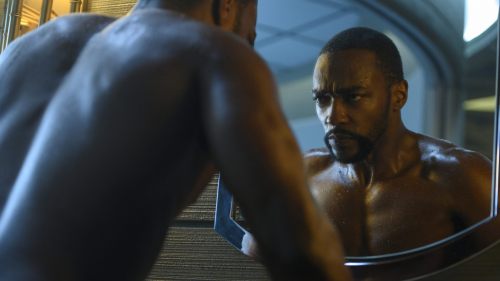BMD Picks: Our Favorite Cyberpunk Pictures
Traditionally, "cyberpunk" is a sci-fi subgenre - often set in a dystopian futureworld, in which society has been dominated by tech. Mega-corps set the standard for what we consume, the working class are represented by radical groups who try to infiltrate the system, while sex and violence become the entertainment of the age. Aesthetically, "cyberpunk" often borrows from the noir detective genre, splashing electronic neons into the mix as Dashiell Hammett is updated for the post-apocalypse. Androids and cybernetically-enhanced human beings rub elbows with those who cannot afford such luxuries, as the portent of urban warfare looms over all things, mass chaos threatening to explode at any second.
The subgenre began on the page, with stories by radical authors like William Gibson, Bruce Sterling, and Neal Stephenson helping to define its staples. Like all intriguing aesthetics, "cyberpunk" eventually made its way to the big screen, helping to redefine the way we look at science fiction in the movies with seminal works such as Ridley Scott's Blade Runner.
This weekend, another great cyberpunk tome makes its way to Netflix - Altered Carbon, the ten-episode series executive produced by Laeta Kalogridis and adapted from Richard Morgan's series of novels. To celebrate, a few of us got together and offered up our own favorite slices of cyberpunk cinema, giving you a crash course in the subgenre before you dive headfirst into the streaming giant's expensive, hyper-nerdy latest endeavor...
*****

Johnny Mnemonic [1995] (d. Robert Longo, w. William Gibson)
Before hitting it big with The Matrix, Keanu Reeves gave the cyberpunk world a first date with the oft-derided Johnny Mnemonic in which Reeves plays a guy who basically has a hard drive in his head and uses it to smuggle that dark web shit.
That’s all well and good. I wouldn’t argue with someone who doesn't like the film, though it probably gets richer with nostalgic ‘90s signifiers with each passing year. I’m here to talk about Dolph Lundgren and how his role as an insane, murderous Jesus freak is one of the best roles of his career and was the first time I ever considered him as an actor instead of a mostly silent pile of blonde muscle. It’s a strange role on paper; Lundgren commits and only makes it stranger and as a result steals an entire film from a cast that also includes Keanu Reeves, Takeshi Kitano, Udo Kier, Henry Rollins, and Ice-T. While most might not look back upon the film with fondness, I’ll always be thankful for it for finally making me the Lundgren fan I am today. - Evan Saathoff

Aachi & Ssipak [2006] (d. Jo Beom-jin, Jo Beom-jin, Yeon-won Jeong & Ed Skudder [English Translation])
South Korean animation Aachi & Ssipak isn’t as traditional a cyberpunk movie as others on this list. Set in a dystopian future where the principal energy source is excrement, and where the government implants microchips in everyone’s anuses to get them hooked on constipation-inducing “Juicybars,” it’s definitely more anally-obsessed, for one thing. Hyperactive and bursting with colour, it tells the story of a pair of street-level hoods, a porn star, and an underground cult of mutants known as the Diaper Gang - and the breakdancing, acrobatic cyborg cop hunting them down. You know, the kind of stuff movies were made for.
Aachi & Ssipak doesn’t make a huge amount of sense, conventionally speaking. It’s properly difficult to keep up with its breakneck pace. But if you’re willing to put up with its puerile (and, I really cannot stress this enough, exceptionally anally-fixated) sense of humour, you’ll witness a great many things you’d never even conceived of before. It’s an insanely, uncomfortably horny movie, filled with weird sex and graphic violence, taking cyberpunk’s basest fetishes and running with them. If the idea of watching a wild animated film about the electronic monitoring of pooping doesn’t excite you, I honestly don’t know what you even watch movies for. All hail the Diaper King. - Andrew Todd

Ghost in the Shell [1995] (dir. Mamoru Oshii, w. Kazunori Itō)
Even if one isn't well-versed in anime, Ghost in the Shell is undeniable in its influence on the cyberpunk genre as a whole. Ostensibly a serial killer movie with the gimmick that the killer known as the Puppet Master is hacking into the brains of unsuspecting cyber-augmented individuals to have them unknowingly act on his behalf, the film is less the police procedural its premise might imply and is much more an exploration of the distinction between consciousness and biology.
The film's protagonist, Major Motoko Kusanagi, is a cybernetically augmented person who questions the reality of her consciousness as it resides in a nearly entirely mechanized form, and the main thrust of her pursuit of the Puppet Master is a self-actualization of an identity that is neither fully human nor machine. There's something in that which spoke to me as a closeted queer kid growing up, of finding an identity that isn't rooted in one's biological origins or reproductive capabilities, and the thought of allowing my mind to exist outside the confines of my singular physical form remains an intriguing fantasy if not an eventual reality. (Also, the gratuitous nudity probably didn't hurt my teenage appreciation for the film, either.)
This is transhumanist prognostication at its most esoteric, and the creativity of its technologically-enhanced yet biologically-depraved world rather perfectly complements what Ghost in the Shell posits the eventual and inevitable evolution of humanity to be. - Leigh Monson

Strange Days [1995] (d. Kathryn Bigelow, w. James Cameron)
Kathryn Bigelow's singular style plays at maximum volume in this underappreciated cyberpunk thriller. Set during New Year's Eve in L.A. at the end of the twentieth century, ex-cop Lenny Nero (Ralph Fiennes) peddles virtual reality memories transported directly into the brains of his clientele via bootlegged government tech. Addicted to playing back memories of his own lost love, Faith - played with punk rock precision by future rocker Juliette Lewis - Nero is reluctantly lured into solving the mystery behind a sleazy series of murders to ensure her safety.
The story by co-producer James Cameron tickles our voyeuristic tendencies and the VR sequences, containing graphic visuals of violence, are unnervingly intensified by Bigelow's first-person POV shots. Amidst social injustices, abuses of power, and total chaos on the streets, it's easy to get why "playback" has become the drug of choice when everyone wants to escape the reality of the dark and seedy world around them. Everyone, that is, except for Mace (Angela Bassett). Mace is busy kickin' ass and takin' names and lookin' fine in her party dress and heels complete with matching thigh holster. Fiennes is great fun as the dapper yet dirty anti-hero, but Bassett is the action hero here ("Calm down, baby. This is what I do"). With a strong supporting cast, including Michael Wincott, Tom Sizemore, and Vincent D'Onofrio, Bigelow's take on the future never strays too far from reality, making it not only a meaningful glimpse into the past, but an all too relevant look at the present.- Emily Sears

Hardware [1990] (d. Richard Stanley, w. Michael Fallon & Richard Stanley)
When Hardware momentarily slid into theaters in the Fall of '90, it baffled many with its Eurosleaze homages and bombed out future shock textures. Despite all the authorship disputes behind the scenes - as two writers came forward, claiming writer/director Richard Stanley had stolen from their short story Shok! - the movie distinctly belongs to its weird auteur, as it's jam-packed with his adoration of depraved sex and violence. Hardware is an uncomfortable film to sit through, as its irradiated wastelands and towering, diseased tenement complexes become hunting grounds for “M.A.R.K. 13” - a reborn red, white and blue death machine that seeks to eradicate everything it comes in contact with. Mercy is not an option, as the robot's a natural byproduct of the colonialist state's need for dominance, thus resulting in nothingness.
Stretching his $1.5 million budget to astonishing lengths, Hardware is really a contained horror picture that dreams of being pure cyberpunk. Stanley holds our hands as he guides us through his grim future - painted with blood-red skies, radiation poisoning, and forced population control. All of the characters are basically degenerates (with one portly peeper going insanely over the top), ready to be slaughtered by this cybernetic organism's array of pointy protrusions. The whole thing is a suffocating act of confrontation, as Stanley doesn't seem to care if you're fine watching his vivid dreamscape or not. This is 90 minutes of Hell, through which there will be no escape for anyone born organically. Just try and survive the night. - Jacob Knight



